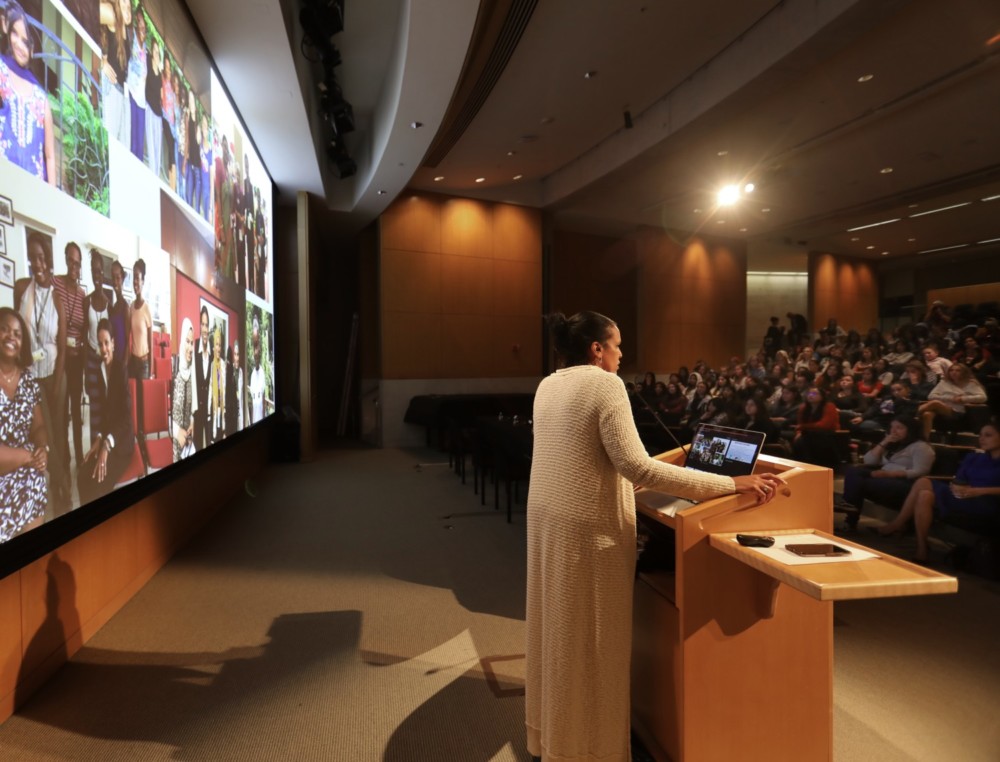By Bradley J. Fikes
The San Diego Union-Tribune
WWR Article Summary (tl;dr) Some of the top women in Stem joined forces in LaJolla to inspire the next generation of scientists. #womeninstem #girlsinstem
The San Diego Union-Tribune
Nearly 300 local high school girls interested in life science got a pep talk and hard-won perspective from Karen J. Nelson, president of the J. Craig Venter Institute, and a panel of other successful female scientists at the nearby Salk Institute in La Jolla, Calif.
Nelson gave the keynote address at the event, the 5th annual program devoted to encouraging girls to pursue a career in biotech.
She warned aspiring scientists they must be prepared for frequent disappointments but urged them to continue because science provides the power to change the world.
“It’s gonna be difficult,” Nelson said she tells those who ask for advice. “You’re going to get rejected. You’re not going to be having fun days every day. But they just want to know that there’s a route to get there and I’ve traveled all over the world. I’ve ended up in places I never thought I would be.”
Nelson had just returned from science work in Paris.
Nelson’s accomplishments include performing a pioneering study on the human microbiome, the collection of microscopic life that lives in and on us.
Today, a growing number of companies are tapping into the microbiome for treating diseases. Nelson takes pride in having been there first.
It helps to have a sense of humor and perspective, she said. Especially in her early days, humor was essential.
A native of Jamaica, Nelson started her American career at Cornell University in Ithaca, N.Y. For the first time in her life, she encountered an American winter.
“I bought my first car in Ithaca and I crashed it within a month because I thought the ice was sand,” Nelson said.
Panelists described their own challenges, including how to be comfortable with themselves in a male-dominated science culture.
Ida Khodami is associate director of global business operations at Illumina, the San Diego DNA sequencing giant. When starting her career, she found it intimidating to deal with more experienced men, even when they were wrong and she was right.
One incident stands out in her mind, an attempt to tactfully inform a senior engineer he had made a design mistake.
buy apcalis oral jelly online pridedentaloffice.com/wp-content/themes/twentytwentyone/inc/en/apcalis-oral-jelly.html no prescription
“He said, I’m not gonna tolerate an 18-year-old with pink shoes (telling) me what I need to do,” Khodami said.
“I excused myself, went to the bathroom, cried a little, looked in the mirror and told myself that I’m really proud of myself for doing that,” she said. “I stopped wearing pink shoes for almost a couple of years.”
Khodami said she eventually decided she would dress as she pleased because hard work and intelligence are what really matters in science.
Elena Blanco-Suarez, a Salk Institute scientist studying neurobiology, said she discovered the challenges of being a woman in science when studying for her Ph.D., and a short woman at that, just 5 foot 1 inch.
She had to speak up to be recognized, but not be too loud.
“They will say to me that I was like a Chihuahua when they get angry and they bark really loudly,” Blanco-Suarez said.
Blanco-Suarez said she also had to deal with stereotypes about what female scientists look like.
“They expect you to be like a nerdy girl with glasses and flats and which, if you are, it’s fine,” she said. “But … we all look different. Sometimes I wear makeup. Sometimes I don’t. Sometimes I’m gonna put heels on. Sometimes I won’t. It doesn’t matter.”
The event is part of the STEAM Leadership series. The San Diego Foundation is the lead sponsor.
___
Distributed by Tribune Content Agency, LLC.














































































































































































































































































































































































